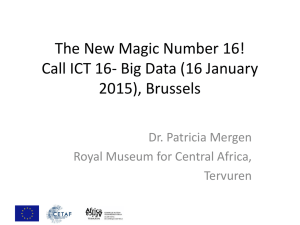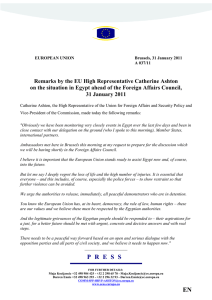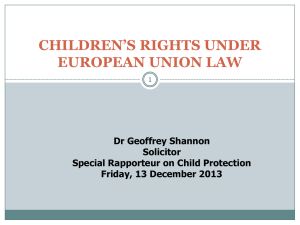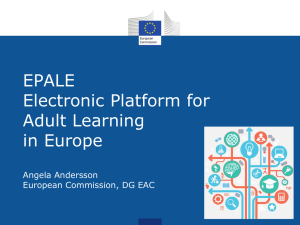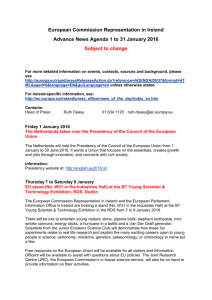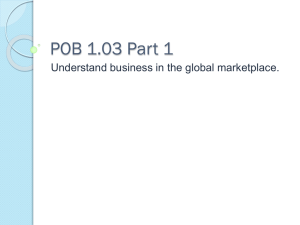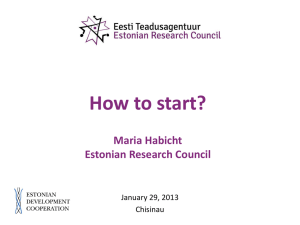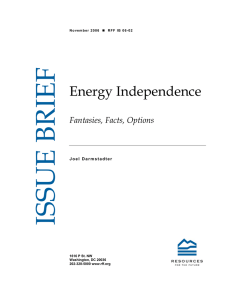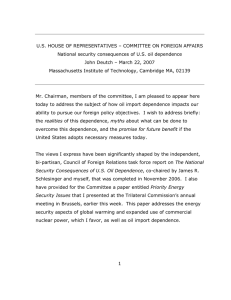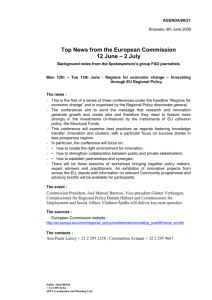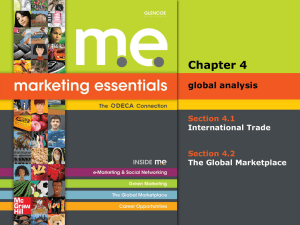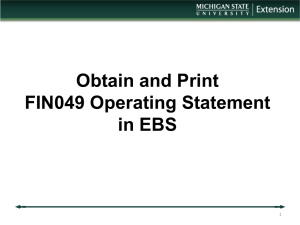European Commission
advertisement
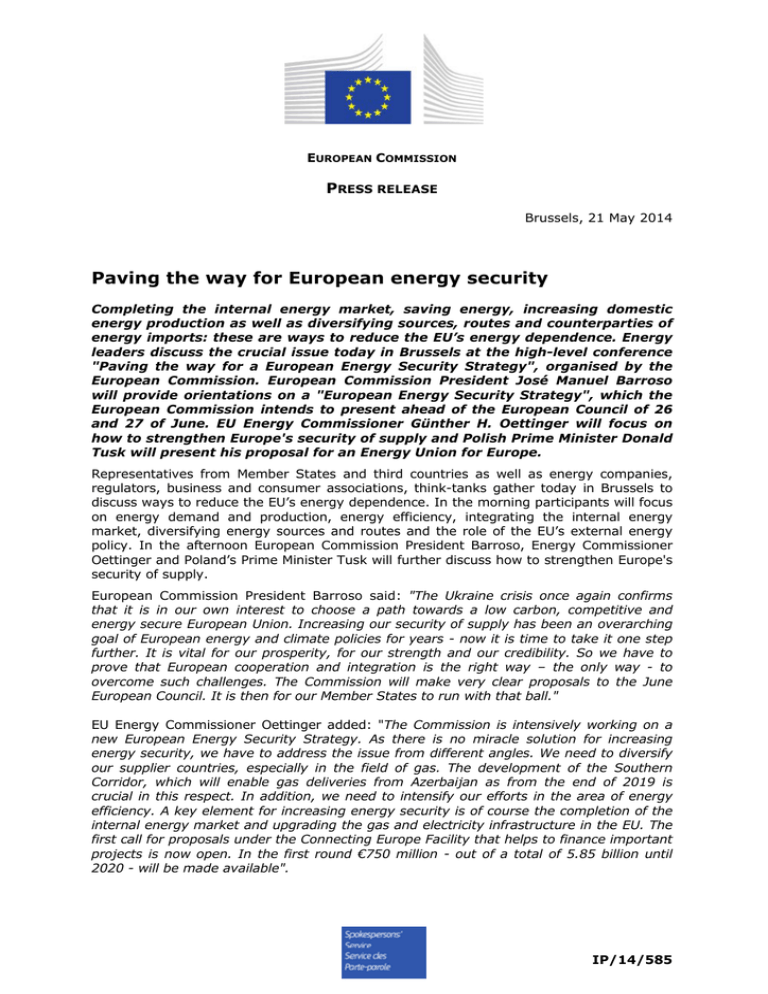
EUROPEAN COMMISSION PRESS RELEASE Brussels, 21 May 2014 Paving the way for European energy security Completing the internal energy market, saving energy, increasing domestic energy production as well as diversifying sources, routes and counterparties of energy imports: these are ways to reduce the EU’s energy dependence. Energy leaders discuss the crucial issue today in Brussels at the high-level conference "Paving the way for a European Energy Security Strategy", organised by the European Commission. European Commission President José Manuel Barroso will provide orientations on a "European Energy Security Strategy", which the European Commission intends to present ahead of the European Council of 26 and 27 of June. EU Energy Commissioner Günther H. Oettinger will focus on how to strengthen Europe's security of supply and Polish Prime Minister Donald Tusk will present his proposal for an Energy Union for Europe. Representatives from Member States and third countries as well as energy companies, regulators, business and consumer associations, think-tanks gather today in Brussels to discuss ways to reduce the EU’s energy dependence. In the morning participants will focus on energy demand and production, energy efficiency, integrating the internal energy market, diversifying energy sources and routes and the role of the EU’s external energy policy. In the afternoon European Commission President Barroso, Energy Commissioner Oettinger and Poland’s Prime Minister Tusk will further discuss how to strengthen Europe's security of supply. European Commission President Barroso said: "The Ukraine crisis once again confirms that it is in our own interest to choose a path towards a low carbon, competitive and energy secure European Union. Increasing our security of supply has been an overarching goal of European energy and climate policies for years - now it is time to take it one step further. It is vital for our prosperity, for our strength and our credibility. So we have to prove that European cooperation and integration is the right way – the only way - to overcome such challenges. The Commission will make very clear proposals to the June European Council. It is then for our Member States to run with that ball." EU Energy Commissioner Oettinger added: "The Commission is intensively working on a new European Energy Security Strategy. As there is no miracle solution for increasing energy security, we have to address the issue from different angles. We need to diversify our supplier countries, especially in the field of gas. The development of the Southern Corridor, which will enable gas deliveries from Azerbaijan as from the end of 2019 is crucial in this respect. In addition, we need to intensify our efforts in the area of energy efficiency. A key element for increasing energy security is of course the completion of the internal energy market and upgrading the gas and electricity infrastructure in the EU. The first call for proposals under the Connecting Europe Facility that helps to finance important projects is now open. In the first round €750 million - out of a total of 5.85 billion until 2020 - will be made available". IP/14/585 Background Following the March European Council the European Commission is conducting an in-depth study of EU energy security and will present a Strategy to reduce Europe's energy dependence ahead of the European Council of 26 and 27 of June. This plan will include a strategy to turn the current international situation into an opportunity to rethink the EU's energy security. Today, the EU imports 53% of the energy it consumes. Energy dependence relates to crude oil (almost 90%), to natural gas (66%), and to a lesser extent to solid fuels (42%) as well as nuclear fuel (40%). The value of imports is more than 1 billion Euros per day. In 2013 energy supplies from Russia accounted for 42% of EU natural gas imports and 33% of oil imports. The share of renewables is constantly increasing, and in 2012 it reached 14.1% of final energy consumption. Today, more than 50% of electricity production is CO2 free (including both renewable and nuclear energy). Looking at the future, reaching the target of 20% of energy efficiency in 2020 would mean 371 Mtoe of energy savings. For further information EbS LIVE coverage: http://ec.europa.eu/avservices/ebs/schedule.cfm?page=1&date=05/21/2014&institution=0#s263141 Event website: http://ec.europa.eu/energy/events/20140521_essc_en.htm Programme: http://ec.europa.eu/energy/events/doc/20140521_essc_programme.pdf European Council Conclusions: http://ec.europa.eu/energy/council/2014_en.htm Contacts : Sabine Berger (+32 2 29 92792) Nicole Bockstaller (+32 2 295 25 89) For the public: Europe Direct by phone 00 800 6 7 8 9 10 11 or by e-mail 2
